Advance Praise for Natures Fortune
In this encouraging, intelligent book that comes none too soon, Mark Tercek and Jonathan Adams show that the corporate world ultimately cant flourish unless the natural world does, too. Through stories equally compelling to entrepreneurs or environmentalists, CEOs or scientists, we see how Natures Fortune and our own are inextricable. If we conserve and nurture our planets gifts like any other crucial asset or investment, we profitor, we squander them at our own peril. Happily, this book shows why we neednt, ever.
A LAN W EISMAN , author of The World Without Us
and Countdown: Our Last, Best Hope on Earth
This book makes plain as day why we need to stop taking natures gifts for granted. Its thoughtful solutions can underpin conservation goals with a powerful business logic. From an alarming premise, we are given reason to hope.
Chris Anderson, TED Curator
Nature is essential for both our human as well as our economic well-being. As someone who has lived in both worlds, Mark Tercek is well positioned to take us on a guided tour of the intersection between business and the environment. With clear examples, this timely book provides a road map for smart investments and new alliances to build a sustainable and prosperous future for people and planet. Bravo!
H ELENE G AYLE , President and CEO, CARE USA
Nature has long been recognized as a source of wealth, but we have yet to give natural capital the proper weight in economic decision making. In this timely book, Mark Tercek argues persuasively that investing in conservation and sustainable use can yield huge dividends for both people and the environment.
L UIS A LBERTO M ORENO , President,
Inter-American Development Bank
In the 1970s environmentalists and business despised each other. In this century they are often close partners. The change was brought about by leaders like Mark Tercek. His book shows how prosperity is as dependent on clean rivers as on strong bridges (both are infrastructure). GMO crops can be as welcome as restoring wildlands, since they both contribute to a healthier planet.
S TEWART B RAND , author of
Whole Earth Discipline
The cause of conservation in the twenty-first century desperately needs sharp, sophisticated, practical minds from the world of commerce. Mark Terceks is clearly among the best of them.
D AVID Q UAMMEN , author of Spillover
and The Song of the Dodo
Mark Tercek argues with refreshing clarity and persuasiveness that we must recognize the substantial economic value in our scarce natural resources. I agree wholeheartedly that the ultimate allocation and use of these resources must be market-based, backed by wise regulation. Tercek makes his point with wonderful real-life examples and prodigious logic.
J OHN F AHEY , Chairman and CEO,
National Geographic Society
This is an important book for environmentalists, investment bankers, and everyone else. It presents a compelling case that investing in nature is a great dealnot just morally but economically as well. It is in all of our enlightened self-interest to take this book very seriously.
M ORTON S CHAPIRO , Professor of Economics
and President, Northwestern University
There are probably more important reasons to protect the natural world, but as this book makes clear, its economic folly to keep wasting our one sweet planet. Its worth infinitely more than economists have traditionally taughtinfinitely more!
B ILL M C K IBBEN , Schumann Distinguished Scholar,
Middlebury College, and author of Eaarth

Natures Fortune

How Business and Society
Thrive by Investing in Nature
MARK R. TERCEK
JONATHAN S. ADAMS
BASIC BOOKS
A M EMBER OF THE P ERSEUS B OOKS G ROUP
N EW Y ORK
Copyright 2013 by The Nature Conservancy
Published by Basic Books,
A Member of the Perseus Books Group
All rights reserved.
No part of this book may be reproduced in any manner whatsoever without written permission, except in the case of brief quotations embodied in critical articles and reviews. For information, address Basic Books, 250 West 57th Street, 15th Floor, New York, NY 10107-1307.
Books published by Basic Books are available at special discounts for bulk purchases in the United States by corporations, institutions, and other organizations. For more information, please contact the Special Markets Department at the Perseus Books Group, 2300 Chestnut Street, Suite 200, Philadelphia, PA 19103, or call (800) 810-4145, ext. 5000, or email .
Designed by Linda Mark.
Library of Congress Cataloging-in-Publication Data
Tercek, Mark R.
Natures fortune : how business and society thrive by investing in nature / Mark R. Tercek, Jonathan S. Adams.
pages cm
Includes bibliographical references and index.
ISBN 978-0-465-04696-6 (e-book) 1. Environmental protectionEconomic aspects. 2. Conservation of natural resourcesEconomic aspects. 3. Sustainable developmentEnvironmental aspects. I. Adams, Jonathan S. II. Title.
HC79.E5T47135 2013
333.72dc23
2012048261
First Edition
10 9 8 7 6 5 4 3 2 1
For Amy, Alison, Margo, Luke, and Rex.
For Susan, Madeleine, and Joseph.
Contents
A S P RESIDENT AND CEO OF T HE N ATURE C ONSERVANCY , I ALWAYS advocate for greater investments in protecting nature. Many people encouraged me to put my ideas about such investments in writing in order to reach a broader audience. Id never written a book before so I knew I would need help. I turned to Jonathan Adamsa great science writer whose books I very much admire. Jonathan has been a strong and full partner in this project. This is how we worked: I came up with the original argument for the book. Thereafter, Jonathan and I together developed the stories, did the necessary research, talked with experts, wrote draft after draft, and refined the argument. Ive really enjoyed the partnership. Jonathan has been a great coauthor. To capture the spirit of the talks that inspired this book, weve written the book together in my voice.
Mark R.Tercek
W HAT IS AN INVESTMENT BANKER DOING TRYING TO SAVE NATURE ? At one of my first big events after I joined The Nature Conservancy (TNC), I was in a room filled with giants from the fieldenvironmental thought leaders, major philanthropists, and leaders of other conservation organizations.
One guest in particular stood out from the crowd: a gentleman in his nineties, still fit and sharp. His manners were impeccable, even courtly, yet he was also clearly not a man to trifle with. Something about him said, Dont waste my time.
I quickly realized that this must be Russell E. Train, a legend in the conservation movement: second administrator of the Environmental Protection Agency, first chairman of the Presidents Council on Environmental Quality, and founding director of the World Wildlife Fund. I was the new kid on the block and I was way out of my league.
Who are you? Mr. Train said, gruffly but not unkindly. I explained that I was the new president and CEO of TNC and added some details about my Wall Street background.
He was unimpressed. How did you get from Wall Street to become the head of TNC?
I fumbled for the right words but did not find them. We moved on to other topics. Russell Train passed away while I was writing this book. Here is what I wish I had told him.
How I Got Here
Unlike many conservationists, especially leaders of environmental nonprofits, I didnt spend my childhood in the late 1960s and early 1970s roaming the great outdoors. I wasnt a backpacker, hiker, kayaker, tree climber, or bug collector. I didnt bale hay or herd sheep. I was a city boy. Born and raised in a working-class area of Cleveland, I spent plenty of time outsideshooting baskets, delivering the Cleveland Plain Dealer , shoveling snow, mowing lawnsbut not in contemplating nature in the grand sense of the word.
Next page
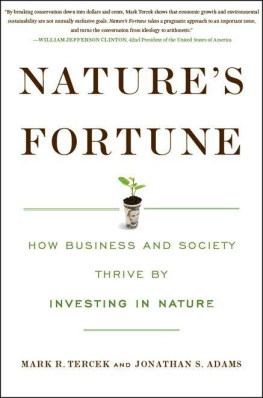
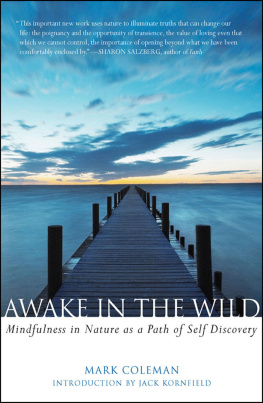
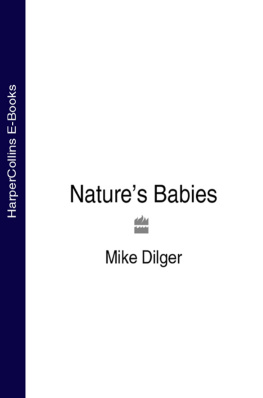
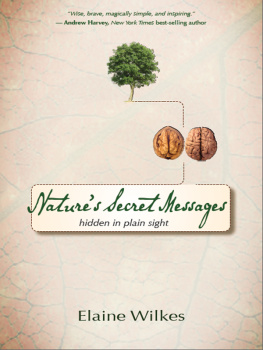
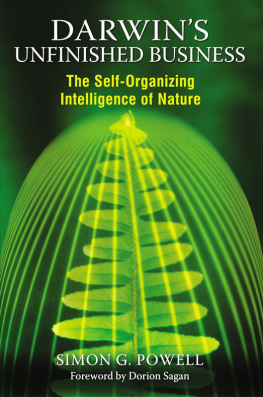
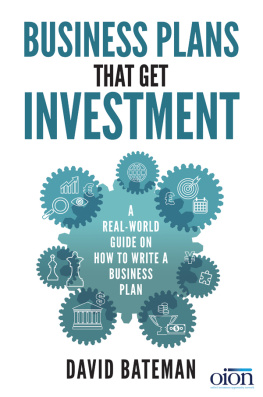
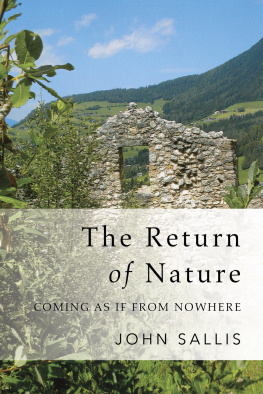

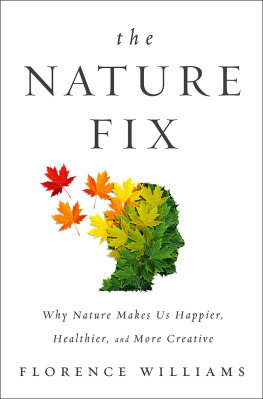
![Katherine Collins [Katherine Collins] - The Nature of Investing: Resilient Investment Strategies through Biomimicry](/uploads/posts/book/124125/thumbs/katherine-collins-katherine-collins-the-nature.jpg)
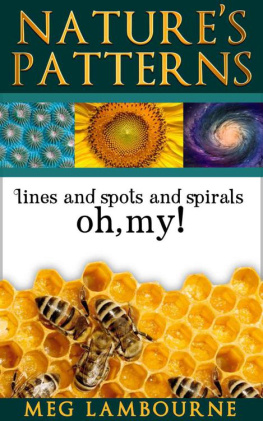

 Natures Fortune
Natures Fortune 